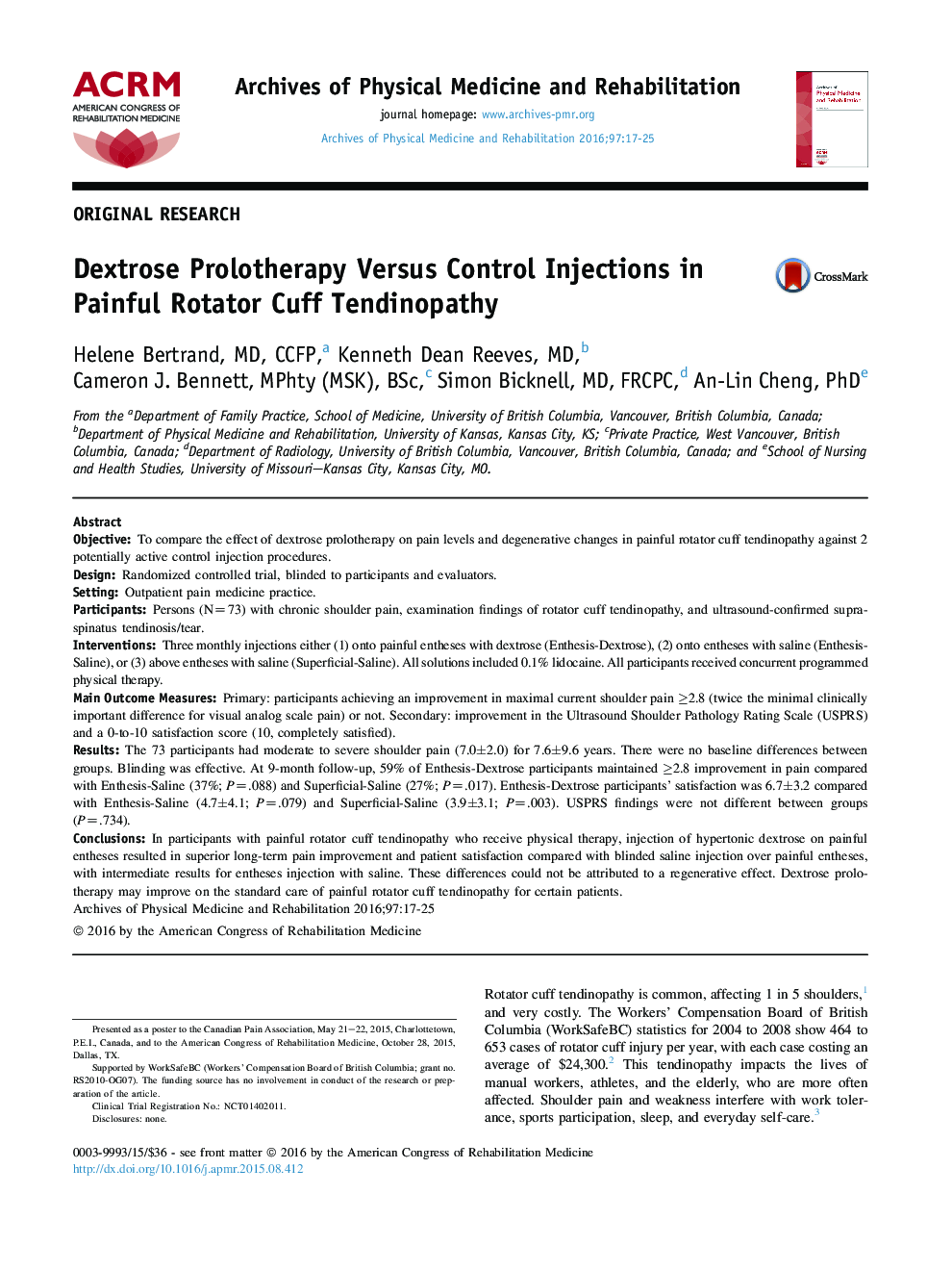| Article ID | Journal | Published Year | Pages | File Type |
|---|---|---|---|---|
| 3448012 | Archives of Physical Medicine and Rehabilitation | 2016 | 9 Pages |
ObjectiveTo compare the effect of dextrose prolotherapy on pain levels and degenerative changes in painful rotator cuff tendinopathy against 2 potentially active control injection procedures.DesignRandomized controlled trial, blinded to participants and evaluators.SettingOutpatient pain medicine practice.ParticipantsPersons (N=73) with chronic shoulder pain, examination findings of rotator cuff tendinopathy, and ultrasound-confirmed supraspinatus tendinosis/tear.InterventionsThree monthly injections either (1) onto painful entheses with dextrose (Enthesis-Dextrose), (2) onto entheses with saline (Enthesis-Saline), or (3) above entheses with saline (Superficial-Saline). All solutions included 0.1% lidocaine. All participants received concurrent programmed physical therapy.Main Outcome MeasuresPrimary: participants achieving an improvement in maximal current shoulder pain ≥2.8 (twice the minimal clinically important difference for visual analog scale pain) or not. Secondary: improvement in the Ultrasound Shoulder Pathology Rating Scale (USPRS) and a 0-to-10 satisfaction score (10, completely satisfied).ResultsThe 73 participants had moderate to severe shoulder pain (7.0±2.0) for 7.6±9.6 years. There were no baseline differences between groups. Blinding was effective. At 9-month follow-up, 59% of Enthesis-Dextrose participants maintained ≥2.8 improvement in pain compared with Enthesis-Saline (37%; P=.088) and Superficial-Saline (27%; P=.017). Enthesis-Dextrose participants' satisfaction was 6.7±3.2 compared with Enthesis-Saline (4.7±4.1; P=.079) and Superficial-Saline (3.9±3.1; P=.003). USPRS findings were not different between groups (P=.734).ConclusionsIn participants with painful rotator cuff tendinopathy who receive physical therapy, injection of hypertonic dextrose on painful entheses resulted in superior long-term pain improvement and patient satisfaction compared with blinded saline injection over painful entheses, with intermediate results for entheses injection with saline. These differences could not be attributed to a regenerative effect. Dextrose prolotherapy may improve on the standard care of painful rotator cuff tendinopathy for certain patients.
